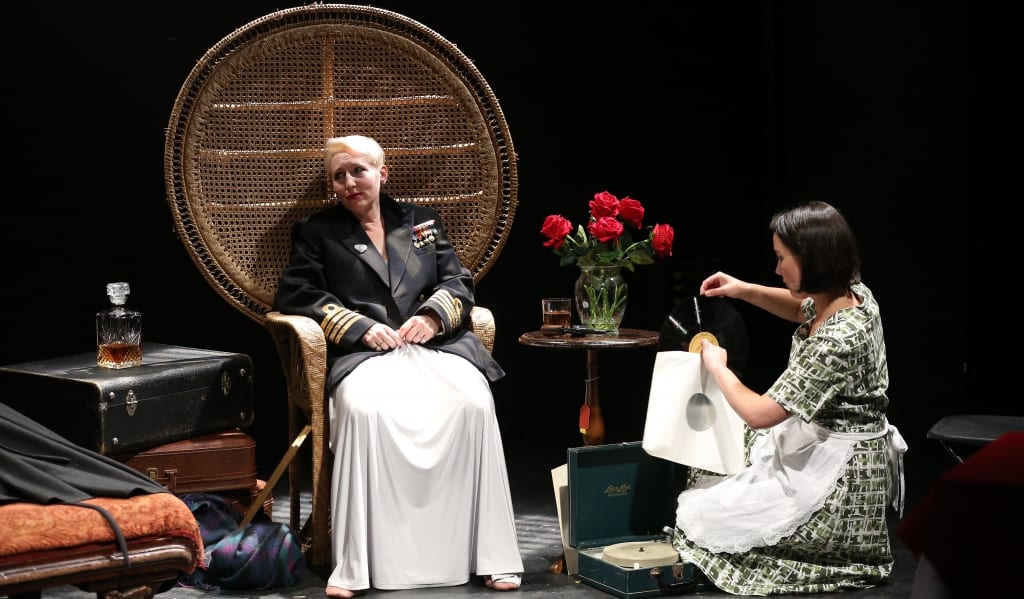Sea, sex, and sailors. This is what Suzy Solidor’s career can be boiled down to – at least, in the resentful words of Solidor’s long-suffering lover. Across the room, with an androgynous platinum-blonde haircut, swishing indignantly in a silky, low-cut dress, Suzy Solidor herself scoffs. “Give me sea, sex, and sailors any day!” she replies, ever-quick-tongued. Solidor is never without a clever answer or a glass of whiskey in her hand. She is a woman who once took Paris and the world by storm, and her life translates marvelously into this fever-dream of a production.
Solidor was a French singer and actress, a contemporary of Josephine Baker and Edith Piaf who rose to fame at the end of the 1920’s. She opened her own nightclub in Paris, La Vie Parisienne, where she was the main attraction both on the stage and in the decor. Called
“the most painted woman in the world,” during the course of her life she was painted 224 times by the likes of Pablo Picasso, Man Ray, and Tamara de Lempicka. Each portrait, she demanded, would hang on the walls of her nightclub.
The space is set up like a jazz lounge with the audience seated in small tables crammed together and a pianist at the ready. Images of the same woman with striking features and a blonde bob dominate the walls – reproductions of Solidor’s portraits. But the show opens in a small town near the southern French coast where we find Suzy in retirement. She is sitting for another portrait, years after her heyday as a performer. She puts on one of her old records to set the mood and we drift back into the 1920s, into Suzy’s salon in Paris. Suzy flirts and croons, regaling us with stories of her love life, male and female partners both, and we become the cabaret audience – though slowly you begin to realize that this flashback is not merely a night at the club. “Time is collapsing,” Solidor cries as the visions on the stage become more like hauntings than remembrances. Lovers flit in and out, as well as Nazi officers, painters, and her estranged father.
Though Suzy is always on stage, and always performing for us, it becomes increasingly clear that some of the scenes we see are hallucinations – a fight with her partner Daisy, a business transaction with de Lempicka, a tribute to a true love who died too young. It’s hard to say what she imagines and what is real – or perhaps it is Suzy’s audience that exists only in her head.
Suzy Solidor is brought to life by Jessica Walker, the star and the author of All I Want Is One Night. Walker is magnetic in her portrayal of Solidor. She is vivacious and yet tender, showcasing the complexity of Solidor as a performer, an openly bisexual lover, and a businesswoman in the fluctuating landscape of Jazz Age Paris through Nazi-occupied Vichy France. Not only is Walker the writer behind the dream-like theatrical portrait of Solidor, she also translated Suzy’s songs – sea, sex, and sailors indeed – from French into English, and performs them with all the boldness, sexiness, or sweetness that each song evokes. It’s a performance that Solidor herself would have been proud of.
All I Want Is One Night is not a series of events; it’s a series of emotions. It’s not a life story as much as it is a paint splatter on a canvas, or a slam on the keys of a piano. It’s a wonderful celebration of a woman portrayed anew in over two hundred portraits, and now onstage once more.

